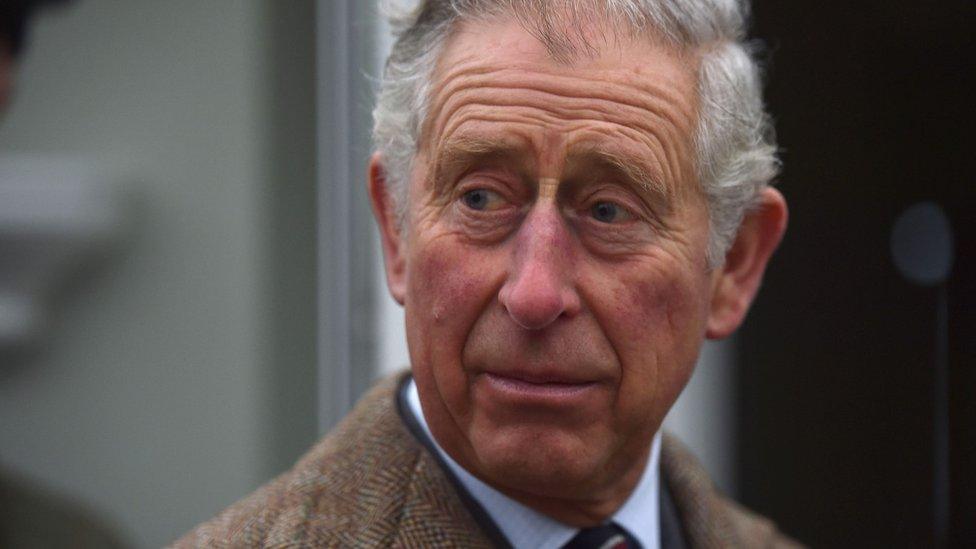Duchy of Cornwall criticised over Isle of Scilly property management
- Published
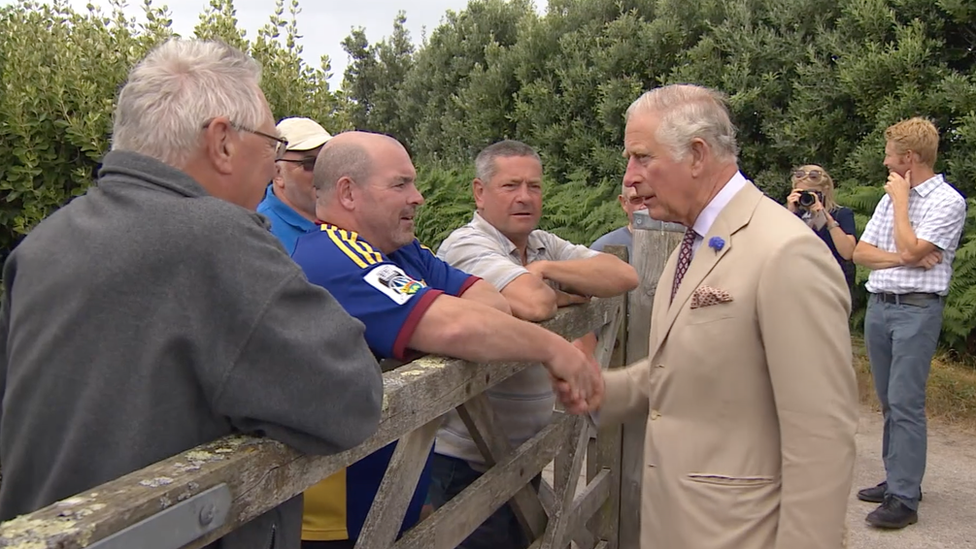
The Duchy of Cornwall owns large parts of the Isles of Scilly and leases the land
A community whose freehold land is owned by the Prince of Wales has complained about huge rent increases and an inability to buy their own land.
The Duchy of Cornwall, which last year made £21m profit, owns and leases land on the Isles of Scilly.
In recent years, some leaseholders have seen annual rent put up from less than £100 to over £7,000 by what one former MP called a "money-making machine".
The Duchy said it set its fees following a "statutory formula".
It said it did not sell freehold land to protect the islands' "unique character".
Leasehold, external is a method of ownership in which someone owns a property for a fixed amount of time, but not the ground on which it stands, on which they are normally charged a nominal rental fee.
'Feudal and unjust'
Alan and Glenda Davis bought the 99-year lease for their property near the Garrison in St Mary's in 1984, with 75 years left to run.
However, when they asked about purchasing the freehold on the land from the Duchy, they said they were "shocked" to find out they did not have the option.
"For us it means we can't take money out of the house, we can't have equity release, we can't mortgage it," said Mr Davis, who said he had no idea of the limitations when they made the purchase.
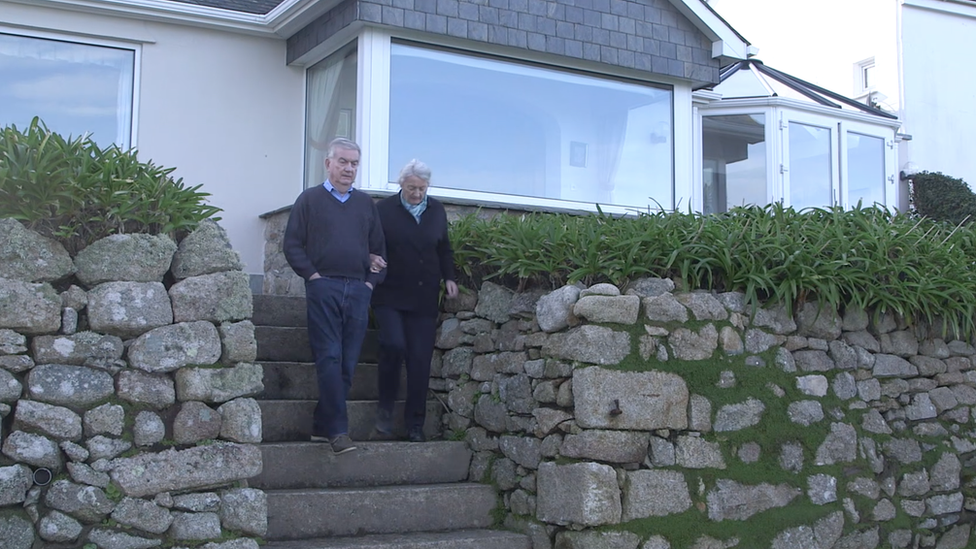
Alan and Glenda Davis were told they did not have the option to buy the freehold on their property's land
Marian Bennet has lived on Scilly for 50 years and said she recently spent "a fortune" converting an old boathouse into a one-bedroom apartment.
However, she only has a 21-year lease on the building, and therefore would not be able to leave it to her children.
"I think it's totally feudal and unjust," she said.
Buying freehold land is a right enjoyed since 1967 and was reaffirmed in legislation in 2001, but the Duchy of Cornwall has been exempt from this right to buy.
"I'm trying to make the garden look nice for someone else's benefit because at the end of the day the house will go to someone else," said Mrs Davis.
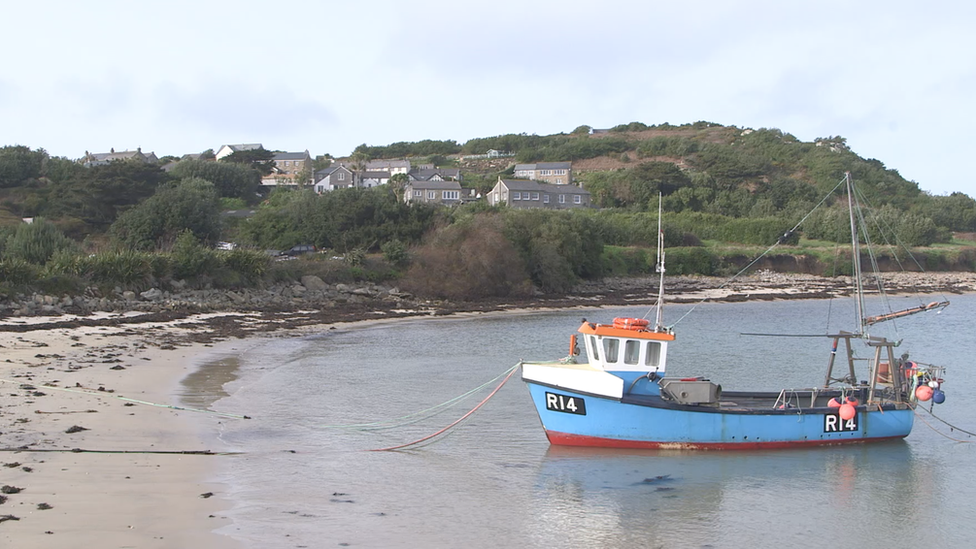
The Isles of Scilly lie 28 miles off the Cornish coastline
The Duchy owns 135,000 acres of land around the UK and told the BBC its £21m surplus was part of the Duke of Cornwall's private income for him to "dispose of as he wishes".
Prince Charles voluntarily pays income tax on the income, but no corporation or capital gains tax.
Former Liberal Democrat minister Norman Baker, who has written a book on the monarchy, its finances and role in society, said the law benefited Prince Charles in a way "unlike any other landowner".
"It's extraordinary in the year 2020 that a medieval throwback like the Duchy of Cornwall - which is simply a money-making machine for the Prince of Wales - can continue to exist in the way it does," he added.
In response, the Duchy said: "Typically over 90% of income from rents from the islands is reinvested on Scilly every year.
"In the off-islands and Garrison, some tenants are not able to acquire their freeholds and we ensure such restrictions are well advertised to potential buyers.
"For those who would normally have this option, the Duchy offers an extension to their lease of 50 years."
You can learn more about this story on Inside Out South West from 19:30 GMT and afterwards on BBC iPlayer.
- Published14 January 2020

- Published17 July 2018
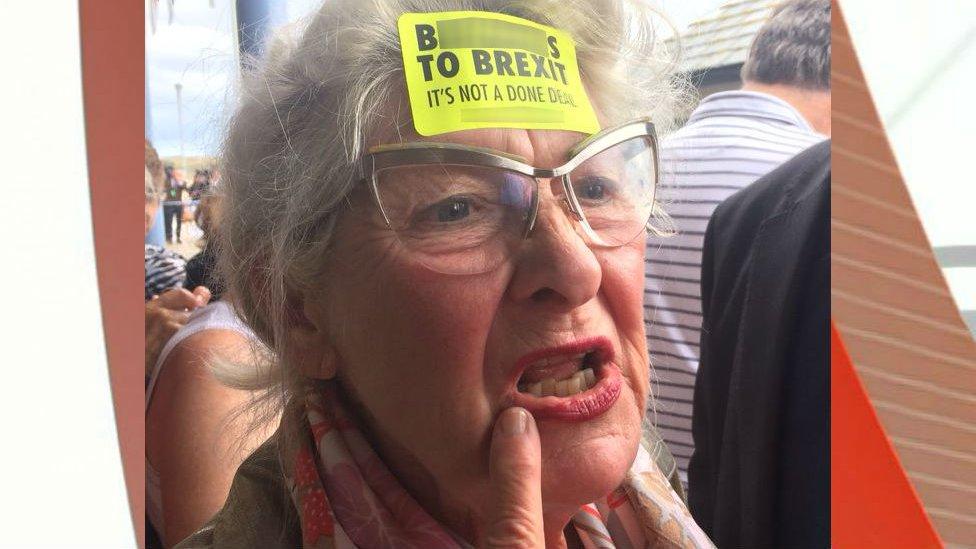
- Published20 January 2016
